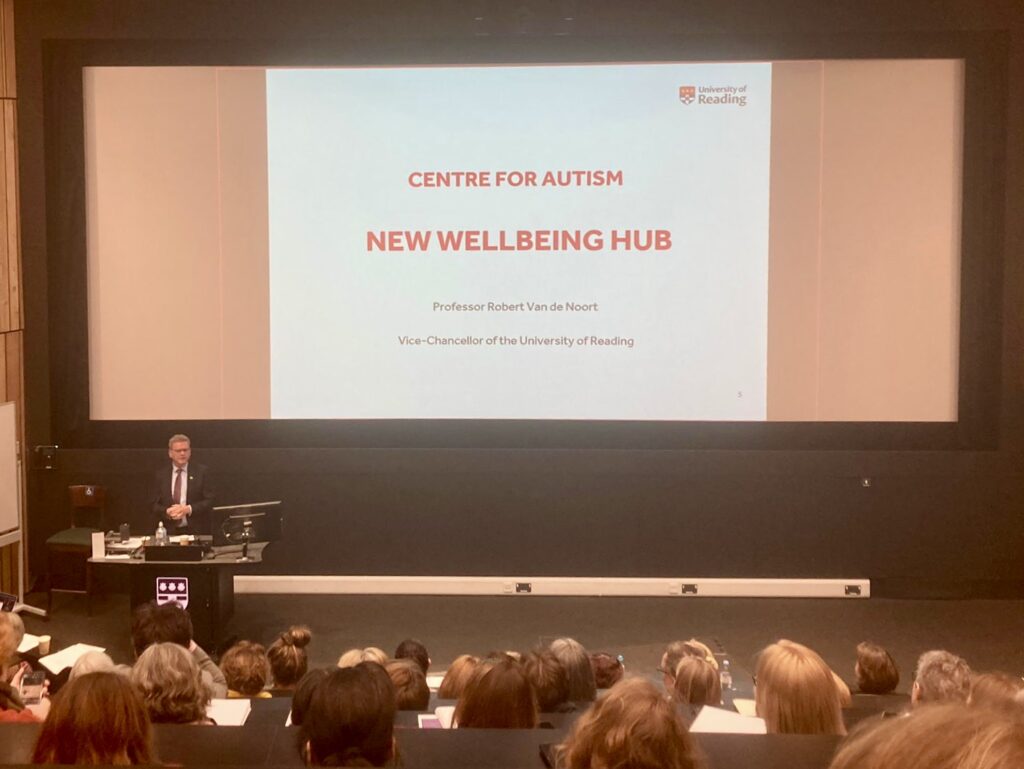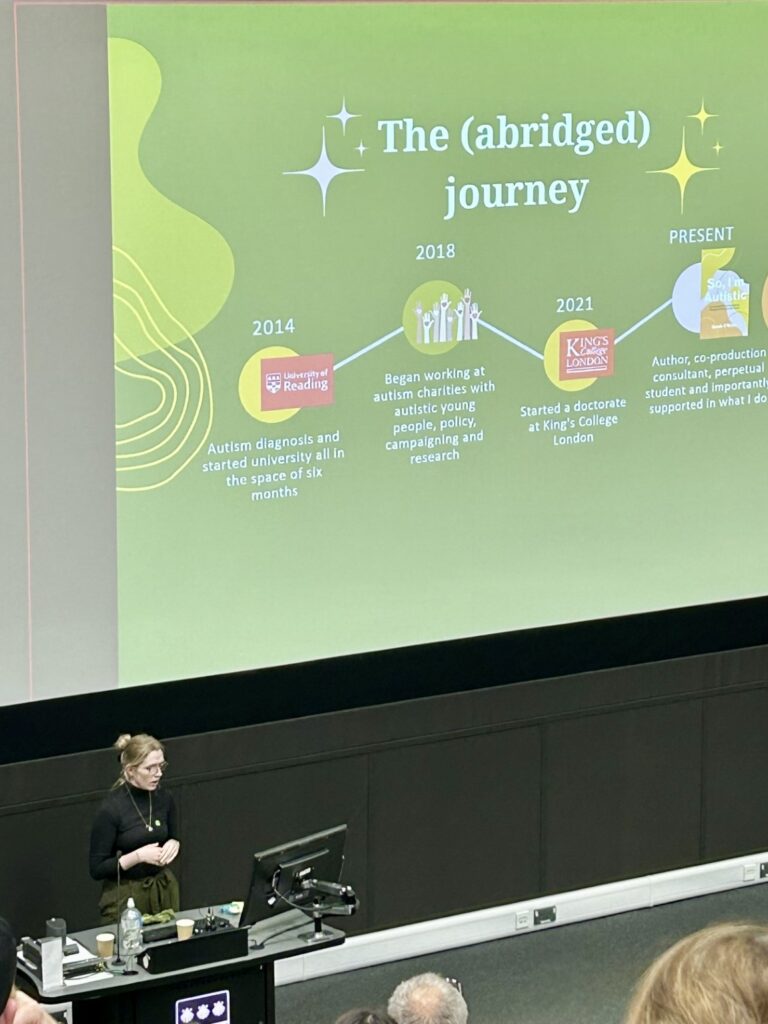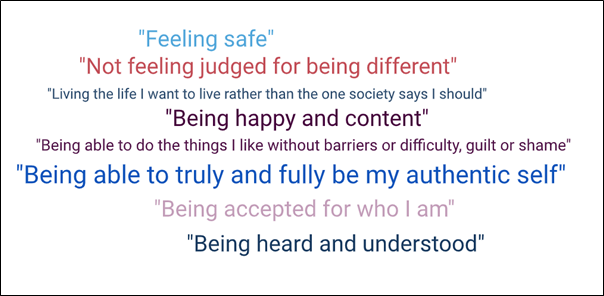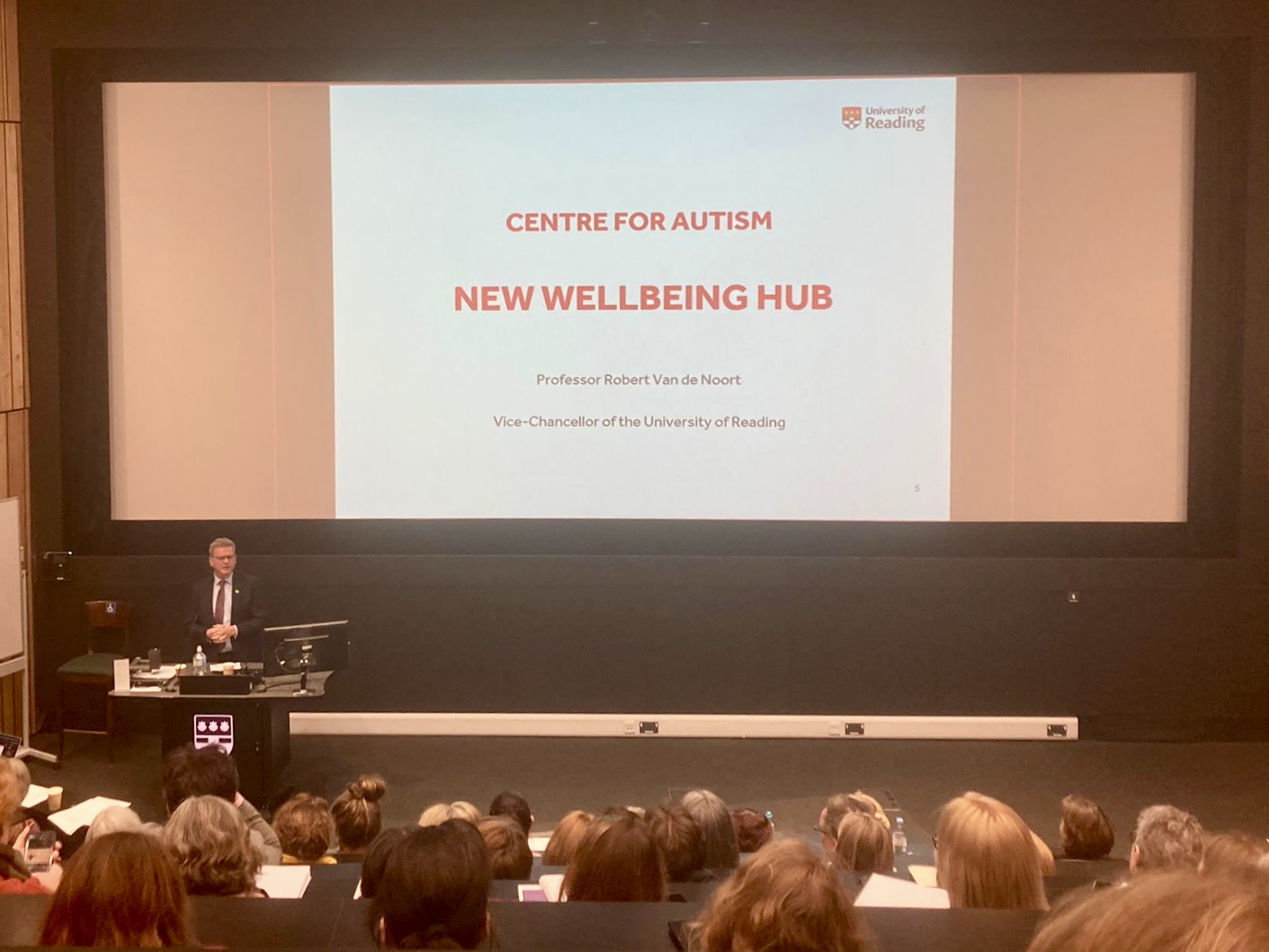On 9 November 2023, the Centre for Autism at the University of Reading launched a new Wellbeing Hub. The aim of the Hub is to create an inclusive community where school-aged autistic children, their families, and supporting professionals can engage in meaningful collaboration focused on the idea of thriving and living one’s best life.

This aim has been developed over the past year in a scoping study involving autistic young people, parents and carers, and local professionals from across the education, health and social care sectors. The study aimed to understand what thriving means to autistic children and explore what they need from the people around them in order to lead flourishing lives.
The children and young people who took part in our study told us that the support they valued most came from people who respected their autonomy, and accepted their authentic autistic ways of being.
Our parent participants told us that they welcomed more guidance in developing the parenting styles their children valued most. They told us that this need was most acute in the initial period following an autism diagnosis, but that more longer-term support was also needed since the needs of their children changed over time. They also told us that they needed more guidance in supporting their children’s mental wellbeing, particularly in terms of reducing anxiety.
Plans for the first year
The Wellbeing Hub has been generously funded for five years by a University of Reading alumni legacy donation and the School of Psychology and Clinical Language Sciences.
In response to the findings of our scoping study, our first year’s activity will involve piloting a programme which provides support and guidance to parents of children who have recently received a diagnosis of autism. This programme aims to support parents in developing enabling approaches to parenting which are rooted in a respect for and understanding of autistic culture.
We are also working in partnership with local special and mainstream schools to provide a programme for parents and professionals centred on reducing anxiety and stress for autistic children both in the home and at school.
For autistic young people, our plan is to develop a range of offerings centred on the areas they identify as most meaningful to them. Our scoping study highlighted that support with understanding one’s autistic identity and developing self-advocacy skills were particularly needed so this will be our primary focus in the early stages of the project.
Beyond this, our aim is to continue to work with autistic children and young people to co-develop and co-produce activities which align with their personal priorities.
We will be running free monthly online talks on a range of subjects relating to autistic thriving. These talks are open to the general public and are designed to be accessible to all. Our first talk is on 14 January 2024 (7–8.30pm) and features autistic teacher and author Pete Wharmby who will be exploring the relationship between autistic thriving and sensory comfort.
Research and development
There is a large literature on autistic distress and mental ill health but much less is known about autistic wellbeing or thriving, particularly from the perspectives of autistic children. Therefore, our approach is underpinned by our commitment to research and the development of evidence-based practices. Our projects at the Wellbeing Hub are being delivered within a rigorous research framework meaning that we are documenting and evaluating what we do with the intention of publishing our findings. It is our hope that these findings will then inform future research and practice.
Training tomorrow’s clinicians
In addition to our commitment to research, we are proud to continue the University’s long history of developing the professional workforce by making an important contribution towards the training of future clinicians, educators and researchers. Student work experience placements will form a key component of the new Hub which will operate with around 12 MSc students each year, supervised at all times by qualified clinicians and researchers. Through training and active participation in Wellbeing Hub activities, our placement students will receive valuable theoretical and practical experience in neurodiversity-affirming practices.

Ongoing commitment to community partnerships
The disability rights movement’s maxim of “nothing about us without us” is central to the philosophy of the Wellbeing Hub. It is very important to us that everything we do is developed in partnership with autistic children and their families, and this aspect of our work played a major role in our launch event last month.
We had over 600 people joining us in-person and online and the evening featured talks from project leads Dr Fiona Knott and Dr Jo Billington, Head of the School of Psychology and Clinical Language Sciences Professor Carmel Houston Price, the Vice-Chancellor Professor Robert Van de Noort, and Reading alumnus and autistic activist Sarah O’Brien.
As part of our commitment to community involvement, and with the aim of expanding a key question in our scoping study, we asked our attendees to describe what the phrase “autistic thriving” meant to them. We had over 330 responses and while we are still analysing the results, the initial themes indicate that our primary focus on autistic authenticity and autonomy is aligned with the perceptions of our attendees.

If you would like to hear more about the Wellbeing Hub and follow our progress, please email autism@reading.ac.uk and request to be added to our monthly newsletter mailing list.
The Centre for Autism Wellbeing Hub is led by Fiona Knott and Jo Billington.

